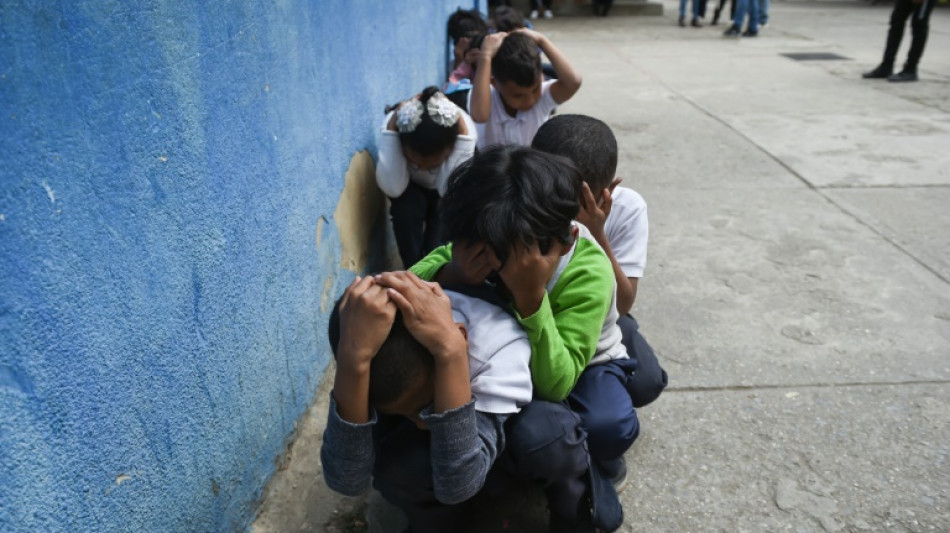
-
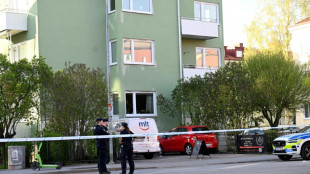 Sweden shooting kills three: police
Sweden shooting kills three: police
-
Real Madrid's Rudiger, Mendy out injured until end of season
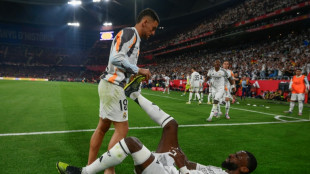
-
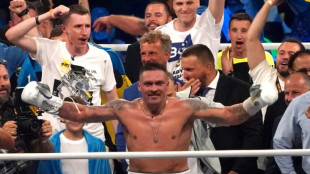 Dubois' trainer accuses Usyk of 'conning boxing world'
Dubois' trainer accuses Usyk of 'conning boxing world'
-
Femke Bol targets fast return after draining 2024

-
 Asterix, Obelix and Netflix: US streamer embraces Gallic heroes
Asterix, Obelix and Netflix: US streamer embraces Gallic heroes
-
Watson wins Tour de Romandie prologue, Evenepoel eighth
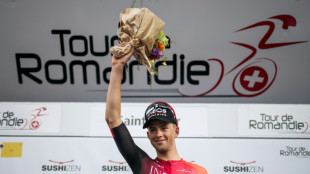
-
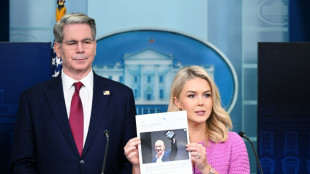 Amazon says never decided to show tariff costs, after White House backlash
Amazon says never decided to show tariff costs, after White House backlash
-
India gives army 'operational freedom' to respond to Kashmir attack
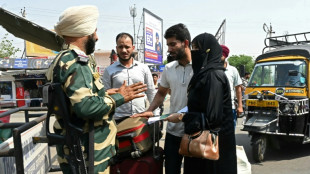
-
 Stocks advance as investors weigh earnings, car tariff hopes
Stocks advance as investors weigh earnings, car tariff hopes
-
Canadian firm makes first bid for international seabed mining license
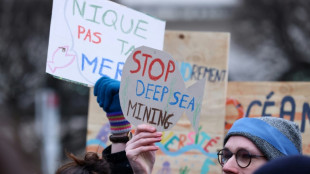
-
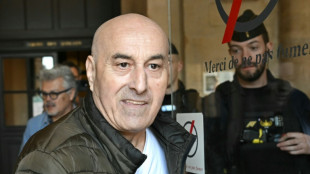 Kardashian robbery suspect says heist was one 'too many'
Kardashian robbery suspect says heist was one 'too many'
-
'Chilled' Swiatek scrapes into Madrid Open last eight
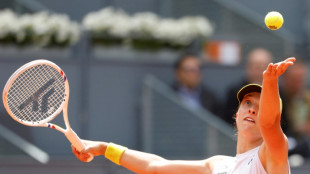
-
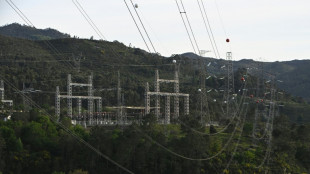 Interconnectivity: the cornerstone of the European electricity network
Interconnectivity: the cornerstone of the European electricity network
-
France accuses Russian military intelligence of cyberattacks
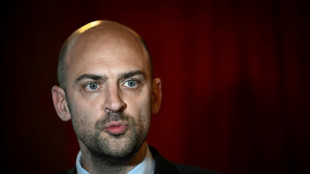
-
 Multiple challenges await Canada's Carney
Multiple challenges await Canada's Carney
-
US consumer confidence hits lowest level since onset of pandemic

-
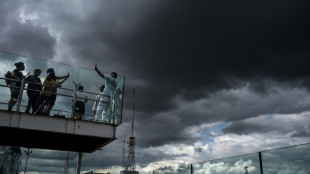 How climate change turned Sao Paulo's drizzle into a storm
How climate change turned Sao Paulo's drizzle into a storm
-
Video game rides conclave excitement with cardinal fantasy team

-
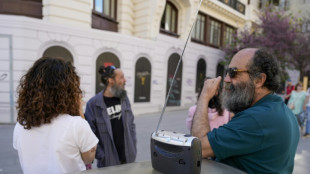 Candles and radios in demand in Spain as blackout lessons sink in
Candles and radios in demand in Spain as blackout lessons sink in
-
Boca Juniors sack coach Gago ahead of Club World Cup
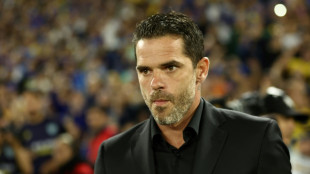
-
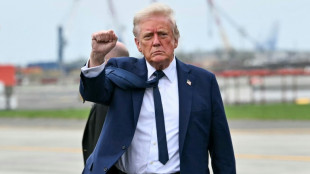 Trump celebrates tumultuous 100 days in office as support slips
Trump celebrates tumultuous 100 days in office as support slips
-
Forest face 'biggest games of careers' in Champions League chase: Nuno

-
 Stocks waver as investors weigh earnings, car tariff hopes
Stocks waver as investors weigh earnings, car tariff hopes
-
US climate assessment in doubt as Trump dismisses authors
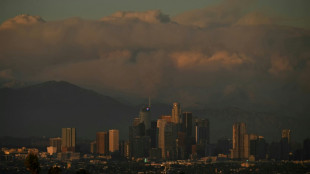
-
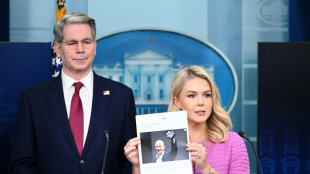 W. House slams Amazon over 'hostile' plan to display tariff effect on prices
W. House slams Amazon over 'hostile' plan to display tariff effect on prices
-
What we know ahead of conclave to elect new pope

-
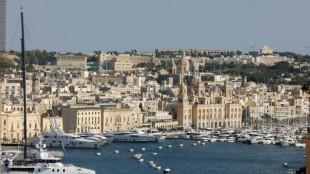 EU top court rules 'golden passport' schemes are illegal
EU top court rules 'golden passport' schemes are illegal
-
Mounds of waste dumped near Athens's main river: NGO
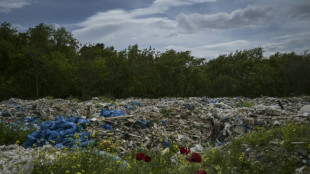
-
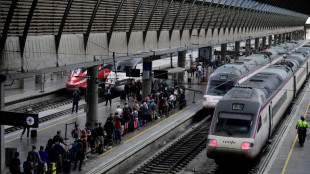 Spain starts probing causes of massive blackout
Spain starts probing causes of massive blackout
-
France targets cheap Chinese goods with fee on packages

-
 Amnesty accuses Israel of 'live-streamed genocide' in Gaza
Amnesty accuses Israel of 'live-streamed genocide' in Gaza
-
Japan, Philippines leaders vow to deepen security ties
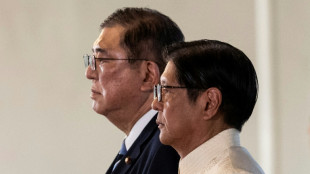
-
 AstraZeneca moves some production to US amid tariff threat
AstraZeneca moves some production to US amid tariff threat
-
Shadman's ton gives Bangladesh lead in 2nd Zimbabwe Test
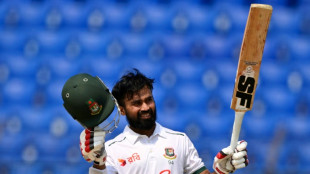
-
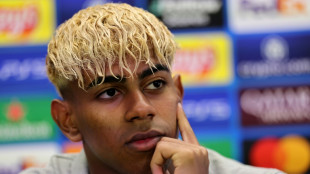 Barca's Yamal: I admire Messi but don't compare myself to him
Barca's Yamal: I admire Messi but don't compare myself to him
-
Pfizer profits dip on lower Paxlovid sales
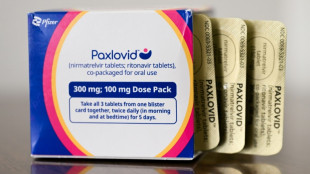
-
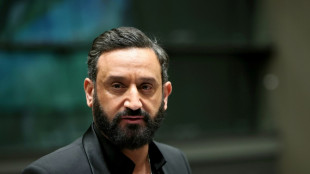 French right-wing TV host fans talk of presidential bid
French right-wing TV host fans talk of presidential bid
-
Two men in court charged with 'moronic' felling of famed UK tree
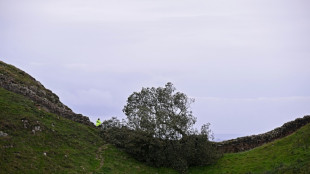
-
 Amnesty accuses Israel of 'live-streamed genocide' against Gazans
Amnesty accuses Israel of 'live-streamed genocide' against Gazans
-
Spotify posts record profit in first quarter

-
 Sciver-Brunt named as England women's cricket captain
Sciver-Brunt named as England women's cricket captain
-
GM profits top estimates, but automaker reviewing outlook due to tariffs
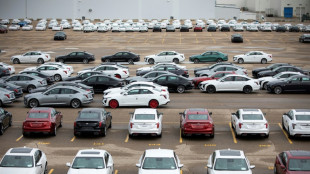
-
 Stock markets edge up as Trump softens tariff pain for auto firms
Stock markets edge up as Trump softens tariff pain for auto firms
-
Pricier trainers? Adidas warns on US tariff impact
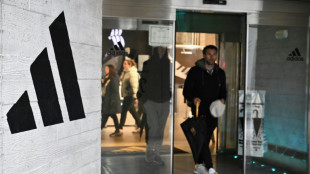
-
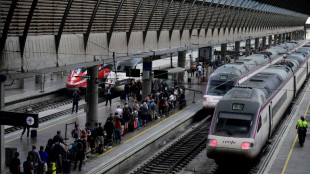 Spain, Portugal rule out cyberattack for massive blackout
Spain, Portugal rule out cyberattack for massive blackout
-
Suryavanshi, 14, dubbed India's next superstar after shattering records
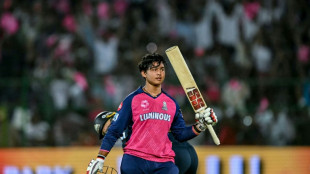
-
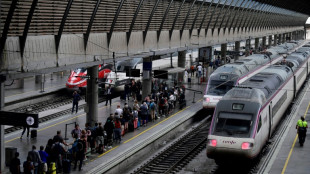 Power back in Spain, Portugal after massive blackout
Power back in Spain, Portugal after massive blackout
-
Pakistan says it shot down Indian drone along Kashmir border
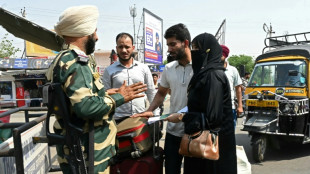
-
 Cardinals run the media gauntlet ahead of conclave
Cardinals run the media gauntlet ahead of conclave
-
BP profit drops 70% amid pivot back to oil and gas


'Keep calm': Teaching Venezuelan kids to hide from bullets
Children fling themselves onto the floor and cover their heads with their hands as loud bangs ring out in the classroom. In one of Venezuela's most violent neighborhoods, this is a shootout drill.
Three boys beat a metal sheet to mimic shots fired. Their peers -- from the first grade of school to the last -- react quickly.
Some take cover in classrooms, others in corridors or the courtyard of the Manuel Aguirre primary and secondary school in the sprawling, crime-riddled slum complex of Petare in the capital, Caracas.
Just days earlier, there was a shootout between gangs nearby, which forced classes to be suspended.
The drill takes about 20 minutes.
For the smallest children, it starts as they are playing with hoops in sports class. They drop to the floor and crawl to a demarcated "safe space" against the wall.
Some of the children scream as they curl up, face down, and cover their ears.
Finally, the school bell chimes three times to indicate the end of the drill.
It will be repeated in two months' time.
"Just as we teach to read and write, we have to give children tools so that they can protect themselves," Yanet Maraima, principal of the school with 900 pupils told AFP.
It is also important that the children can apply what they learned if needed "at home."
- Afraid to go to school -
The training is organized by the International Committee of the Red Cross (ICRC) at Manuel Aguirre and other schools in Caracas.
Manuel Aguirre is in a sector of Petare overflowing with houses of naked brick walls and zinc roofs built into the mountainside, connected by narrow alleys and staircases.
Violence between drug gangs is so rife here that children can distinguish with frightening ease between shots fired from different guns, and at what distance.
"It's a dangerous area," pupil Breylis Breindenbach, 16, told AFP.
"Sometimes I'm afraid to come to school."
Petare had a rate of 80 violent deaths per 100,000 inhabitants in 2022, according to the Venezuelan Violence Observatory, an NGO. There are no official statistics.
The rate is more than double the already alarming national figure of 35.3 per 100,000 -- six times the world average.
In the same neighborhood, Marisela Mujica, a nun, leads a prayer at the Jesus Maestro school in the gang-disputed Jose Felix Ribas neighborhood.
"We had a tense week, we are going to pray for peace," the nun tells pupils gathered in the courtyard.
"What do we want?" she asks the kids. "Peace!" comes the response in chorus.
The Jesus Maestro school has 722 preschool and primary school pupils, but when tensions flare up, not even 200 attend, with civilians caught up in the crossfire and many afraid to leave their homes.
"You never get used to the shots, you live with that constant worry," principal Ivonne Gonzalez told AFP.
"It is like having a school in the Wild West."
In Petare, added Mujica, "the gun is the law. We must fight so that the children see it differently."
- 'Keep calm' -
Similar security drills happen in other Latin American countries with high levels of violence, such as Brazil and Mexico.
In Rio de Janeiro, they have been in place since 2009 in over 1,500 schools in areas where drug gangs or vigilante militia run rife.
"To have training to live in this kind of environment is very important," Renan Ferreirinha, Rio's municipal secretary of education, told AFP.
"Hopefully one day it will no longer be necessary."
For Gonzalez, the most important thing is that the children internalize what they learn.
She recounted that a pupil recently told her about getting caught up in a street shootout.
"What did you do?" she asked the child. "I fell to the ground and crept under a car," was the response.
Mujica goes from class to class to reinforce the lessons.
"What is the first thing we should do" in case of a shooting? she asked one group of students.
A girl replies, correctly: "Keep calm."
M.A.Colin--AMWN